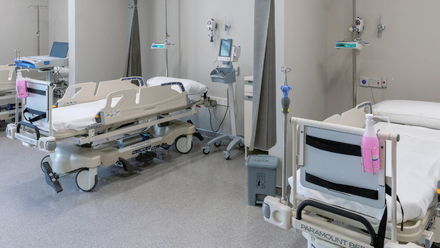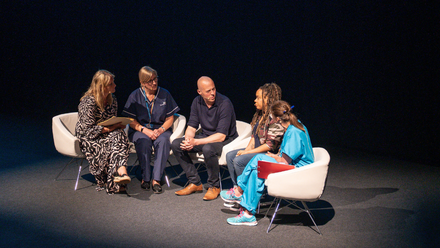Wellbeing support
We are providing wellbeing support to intensive care to make sure they can keep caring for us
The Intensive Care Society welcomes research published this week on mental health of staff working in intensive care during COVID-19 which highlights the high level of reporting of symptoms of depression, anxiety and Post Traumatic Stress in ICU staff across the UK.
The results are worrying, but not surprising as ICU staff and our wider hospital colleagues have now been under tremendous pressures for almost a full year.
As with all research, it is important to put this data into context: it indicates current common symptoms which a sample of UK intensive care staff are experiencing. The data represents nine of the 280 UK ICUs, so is not fully generalisable, and questionnaire data is indicative of problems but is not a diagnostic tool.
The alarming questionnaire data suggests problems at a diagnostic level, but such labels are not always helpful. Its less a case of what is wrong with you, it is more a case of what has and is happening to you.
- Dr Julie Highfield, ICS National Wellbeing Director.
COVID-19 is horrible for patients and staff - staff are at breaking point. Don’t suffer alone – please ask for help - it’s available from the Intensive Care Society.
- Dr Stephen Webb, ICS President.
The Intensive Care Society Wellbeing Support
Our wellbeing support programme includes providing 1-1- psychological support, reflective sessions, training in mental health awareness and self and team care, and webinars, podcasts and written resources. Thanks to the generosity of our supporters and donors these resources are free to all staff and can be accessed at www.ics.ac.uk/thrive.
From talking to, and directly supporting, staff on the ground we know that many are feeling overworked and overstretched, so their bodies are responding with stress and anxiety. Trouble sleeping, intrusive thoughts, variations in moods or feeling tearful are all commonly reported symptoms. Staff also currently have very few social outlets and struggle to engage with their usual pre-pandemic coping mechanisms.
The recent research is helpful because it highlights for staff who are feeling alone in their experiences that this is not the case. It really is ok not to be okay. The data also illustrates the importance of the wide range of support offered to staff by both the Intensive Care Society and the NHS - help is at hand.
- Dr Highfield
Staff are currently in the epicentre of the second wave, and have yet to face its peak, and it is unclear how people will recover. We know from previous data from other pandemics that PTSD levels of 1 in 4 may recover to 1 in 10 over time (Allan et al, 2020). We are also aware that pre-pandemic our ICU staff were at a 1 in 3 risk of burnout (Vincent et al, 2019) and 1 in 10 risk of PTSD (Coleville et al 2016).
The Society has been working hard to include psychological expertise to the frontline of intensive care in order to provide support to the wider intensive care community.
We recognise that intensive care is both a challenging and rewarding place to work, and we need to get the balance right to create the core conditions for staff to thrive at work. That’s why we have been working with a team of ICU staff on our ICS wellbeing programme.
- Dr Highfield
The Intensive Care Society’s wellbeing programme is completed funded by our supporters and donors. Those wishing to contribute to the sustainability and expansion of our wellbeing service, you can do so via www.ics.ac.uk/donate.
To speak to our Dr Julie Highfield for background information or interview, please contact [email protected]



